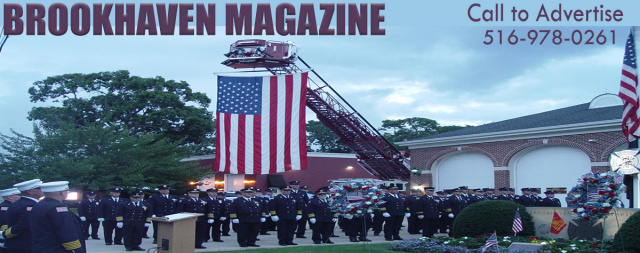If only the Jet East nightclub were so serene on Saturday nights in July, Fred Hauquitz, who lives across the street, would be content. ''Either that or burned down, one of the two of them,'' said Mr. Hauquitz, 79, echoing the sentiments of other Hamptonites who live near nightclubs that throb to loud life on summer weekends.
Like many clubs in the Town of Southampton, Jet East sits on a plot of land that once was home to a succession of restaurants. Mr. Hauquitz said he would welcome a return to the days when he would dash across the street for a steak at Gannon's or, before that, go to hear the owner of Smitty's play the organ during dinner.
As it turns out, Mr. Hauquitz may get his way.
Last summer, the Town of Southampton commissioned a $24,000 study of bars, taverns and nightclubs within its borders. The consultants who prepared the study talked to neighbors, checked zoning codes, documented previous violations and stopped by on weekends to listen to the thumping music and witness the revelry.
The study, released last month, concludes that some of the town's bars and nightclubs are running smoothly, posing few problems for neighbors. But it recommends that others take certain measures to become more neighborhood friendly: anything from reconfiguring exits so headlights do not shine in residents' windows, to moving noisy air-conditioners, to putting in double doors to block the sound of music when one set swings open.
But it is what could happen if the most irksome clubs do not comply with such recommendations that is drawing the most attention.
In conjunction with the study, the town supervisor, Patrick A. Heaney, said he intends to introduce a law that would let the town, over time, phase out nightclubs whose owners or managers repeatedly rebuff demands to address neighbors' concerns.
As of last week, the law was still in draft form, with the town attorney's office tweaking some of its provisions. Under the draft law, the town building inspector would work with the police and other authorities to determine which clubs fit the bill, Mr. Heaney said. Clubs that disagree can take their case before the Zoning Board of Appeals. With the board's approval, town officials and the club owners, or managers, would work together to develop a phaseout schedule that would allow them to recoup their investments. Owners would then be allowed to convert their nightclubs into, say, restaurants, cafes, even private homes, as long as the new uses conformed to zoning regulations.
Mr. Heaney likened the proposal to the process whereby, years ago, the town's billboards were dismantled, gradually, after those who had invested in them recouped their losses. But with one critical difference.
''Our No.1 goal here is not to put people out of business; it's to encourage people to have a thriving business and be a good neighbor at the same time,'' Mr. Heaney said. ''At some point, if we're not able to get them to follow the recommendations in the study that will ameliorate the concerns of the neighbors, we're going to go to the last recommendation, which is to consider phasing out. At that point, we're going to seriously consider eliminating the use at that site.''
Conflict between quiet-craving homeowners and the lively nightclubs that keep them up at night is not unique to the Hamptons, and it is not new. But the conflicts here have grown more intense as the Hamptons have become an increasingly popular place to live year round, while at the same time they continue to enjoy or suffer, depending on one's perspective, a steady influx of summer crowds.
Some of the town's clubs were quaint sandwich shops or small restaurants that were in place in residential neighborhoods before the town adopted its first zoning regulations, in 1957. While a planner with a blank slate would not put Jet East across the street from the mustard-colored house where Mr. Hauquitz and his family have lived since 1947, the reality is that they are neighbors. And in a place that values both its rural serenity and its tourist economy, lawmakers are struggling to strike a balance.
Some homeowners believe the balance may have been tipped in July 2001, when a certain heavily publicized publicist -- Elizabeth S. Grubman -- backed a Mercedes S.U.V. into a crowd of clubgoers at the Conscience Point Inn, a nightclub down the road from Jet East that she represented at the time.
Indeed, while the Conscience Point Inn is included in the recently released study, the town board voted earlier this year to buy the club and adjacent marina, with money from a community preservation fund. It was a move intended to bring a valuable slice of waterfront property into the public domain, and to appease the club's angry neighbors.
Clearly, the town cannot buy out all the nightclubs that generate complaints. Nor would it want to.
Certain nightclubs are ''part of the Hamptons ambiance,'' said Linda Kabot, a town board member. ''I think some of the board members may forget that they were 20-somethings at one time, too. This is part of the lifestyle
''There has to be some recognition of the value that some of these establishments provide to the local community.''
So the study suggests other remedies.
The study found that three clubs, in addition to Conscience Point, were simply not compatible with their surroundings. The town, it concludes, should consider phasing out the three: Turtle Bay in East Quogue, Beach Bar in Hampton Bays and Lena's in Riverside, where last weekend a young mother was killed by a stray bullet, after a security guard fired shots at men he said were attacking him.
The study recommended the town consider phasing out seven other nightclubs, which were deemed generally incompatible with their surroundings, a classification that offered more hope of compromise. They are the Wild Rose Cafe and Azucar Morena in Bridgehampton; Jet East; Brazil and Margarita Island, in Hampton Bays; and Surf Club and the Castaways in Westhampton.
For Jet East, the nightclub study is only its latest obstacle. Mr. Heaney said the town board recently authorized him to take the club to court, after he said it failed to comply with all the terms of an earlier agreement to make certain changes intended to cut down on noise, streetside parking and other problems.
An owner of Jet East, Andrew Sasson, did not return telephone calls seeking comment. Edward D. Burke Jr., a lawyer who represented the club until he removed himself from the case to represent Ms. Grubman, said the delay happened because the club wanted to change its plan for a new parking lot to make it safer, but had been told it would have to go through the entire zoning process again.
Mr. Burke, who has represented a handful of other Hamptons nightclubs, said that while the phaseout law is an ''interesting concept,'' it raises questions.
''I think it has constitutionality problems,'' Mr. Burke said, adding that nightclubs that are told they can no longer exist as such in their current locations could have a hard time finding new sites in town.
''Do they have more light industrial areas available for them to exist?'' Mr. Burke asked. ''These clubs must be afforded an area to perform their duties.''
Stephen Bernous, 25, a manager of Brazil, a shingled building with a green awning and decorative pools on the Shinnecock Canal, said neighbors who complain about noise and parking violations should have known what they were getting into.
''People come out here, and buy a house 100 feet from the door of a nightclub,'' he said. ''That's something they should realize when they buy a house.''
Mr. Bernous added: ''We've put a lot of time into keeping the place clean and proper looking. The thought of being told you have to go after you've spent thousands of hours here, it's definitely scary.''
Some homeowners are skeptical that the study marks a turning point, and note that even if the amortization law passes, it could take years before club owners make enough money to allow the phaseouts to take place.
Alan Rodriguez lives near the Beach Bar, which the study says ''represents one of the more severe problems'' as far as nightclubs and their residential neighbors are concerned. The study concludes: ''Establishment presents a significant negative impact to the surrounding community related to noise, traffic, drunken behavior and overall quality of life.''
Mr. Rodriguez, who said doctors have attributed his toddler son's sleeplessness to the fact that his wife, Olena, was kept awake until late at night during her pregnancy, agrees. So why the study, he asked.
''I think they did a great job wasting their money finding out what everyone already knew: that having a nightclub in the center of a residential neighborhood is a grossly inappropriate situation and it has a serious negative impact on a community,'' Mr. Rodriguez said. ''This town loves to commission studies, and then things don't get done.''
Some town board members pointed to clubs that they believe are more disruptive than the study indicated, including the Neptune Beach Club, on Dune Road in Hampton Bays.
The study found that the Neptune club, which is generally closed at night, was not a problem, although it recommended the club improve its security, ''to discourage illegal or drunken activities.''
According to the study, the consultants found out about Margarita Island in the middle of their research, when a patron at Boardy Barn, a daytime and evening club that closes early, mentioned that she and her friends often go there when Boardy Barn closes. Margarita Island, the consultants wrote, is a restaurant that has evolved into a nightclub, although its permit allowed for a bar to accompany the restaurant.
Several restaurants were also examined.
Larry Hoffman, who owns Dockers Waterside Restaurant, Bar & Marina, on Dune Road in East Quogue, was initially upset to find out that his was among them, although his concerns were abated after his lawyer pointed out that the prognosis was positive. Still, Mr. Hoffman wrote a letter to the town board saying Dockers should not have been included in the study. He enclosed a menu featuring $125 bottles of wine and $28 shell steak with caramelized Vidalia onions and a sweet port reduction glaze -- hardly the stuff of rowdy throngs.
Mr. Hoffman suggested that instead of trying to phase out problem clubs, the town should consider a more streamlined zoning process that would allow restaurants, bars and clubs to make changes that would help their neighbors more quickly, and without the expense of a lawyer.
''I have never met a bar owner, nightclub owner, tavern owner, disco owner that has not been willing to accommodate any request to change something, but the procedures and policies and code currently in existence for the town prohibit you from doing these things,'' Mr. Hoffman said. ''The regulation process is so cumbersome that there's no incentive to get this done quickly.''
While some residents and club owners speculated that closing clubs would drive away the younger, wilder components of the Hamptons set, Mr. Hoffman said he feared the crowds would still come but would have to search for a place to go.
''I do not want that element lurking around Dune Road for a place to hang out,'' Mr. Hoffman said. ''I'm sure they're very nice people, but that's not the clientele that I have at Dockers.''
As for Ms. Grubman, whose incident shined a spotlight on the controversy over Hamptons night life, she said she was never much of a nightclub person to begin with. She said she turned down at least one request to represent a Hamptons nightclub this summer. And not only, she said, for the obvious reasons.
''I think night life in the Hamptons is primarily done in terms of nightclubs,'' she said. ''Dinner parties, restaurants, sitting with a group of friends, even just hanging out at restaurants is the new trend.''
Photos: GOOD AND BAD -- Olena Rodriguez and her son, Alan, top, live across the street from the Beach Bar in Hampton Bays, which ''represents one of the more severe problems'' among clubs, a Town of Southampton study says. The Neptune Beach Club, top left, was found not to be a problem, but Jet East, above, was. (Photographs by Doug Kuntz for The New York Times)(pg. 1); GOOD FENCES? -- A study has deemed Brazil incompatible with its neighborhood in Hampton Bays. (Doug Kuntz for The New York Times)(pg. 9)







































































